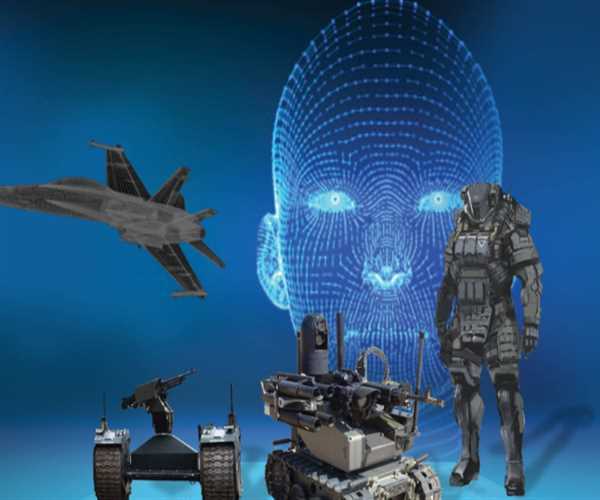Almost all civilian industries have been impacted by artificial intelligence. It has altered how individuals and organizations operate, and it is quickly becoming an essential part of contemporary warfare. An army's strength is one of the factors that affects a nation's level of power.
In some of the most developed nations, investment in this industry is higher than in others. This expenditure goes largely towards rigorous research and development of cutting-edge technology, like artificial intelligence (AI) for military use. This blog will further walk you through how artificial intelligence can benefit the defense sector.
AI Applications for Defence Education
A variety of disciplines, including simulation and training, combine concepts from software and system engineering to build models that help soldiers practice using various fighting systems that are actually employed in military operations. The US Army and Navy have already started a number of sensor simulation programme. Furthermore, dynamic, realistic, and effective training simulations can be created using augmented and virtual reality technology approaches. The reinforcement methods can be advantageous to both human soldiers and virtual entities.

Monitoring
AI and geographic analysis work together to help retrieve valuable data from networked devices such as autonomous identification systems and radars. By using this data, the proper authorities can be notified and any illegal or questionable conduct can be detected. AI-enabled robots and IoT-enabled computer vision can also help with target detection and classification.
Weapons and Ammunition
Modern weapons increasingly use AI-enabled technology. For instance, advanced missiles don't require human assistance to estimate and inspect the target level for kill zones.
Online safety
In military circles, cyberspace is currently considered the third front in the fight, after land, sea, and air. The security of the entire region could be compromised by a maliciously compromised network. Defense agencies utilize machine learning to predict and guard against illegal breaches. Typically, the process of detecting intrusions involves classifying the network as either normal or invasive. Techniques based on artificial intelligence (AI) help to increase the precision of this kind of classification.
Organizational logistics
One of the most important factors in deciding the success of a military campaign is logistics. Military logistics systems are combined with machine learning and geographic analysis to reduce labor, time, and error.
AI Applications in Military Across the Globe
Russia's military prowess is well acknowledged globally. The equivalent of DARPA in the United States in this nation is the Foundations for Advanced Research Projects. Prominent figures have been seen advocating for the military's use of AI-based technology. The Russian military is reportedly thinking about leveraging big data, AI, and machine learning to carry out information operations more successfully.
For the purpose of locating, evaluating, and disproving false information in the commercial and defense industries, Russia is currently making significant investments in artificial intelligence (AI). Additionally, India is making modest steps to integrate AI-based technology into its initiatives related to surveillance and combat.
In reality, the Ministry of Defence formed a high-level Defence AI Council (DAIC) in 2019, tasked with delivering strategic direction for AI adoption in the defense sector. The DAIC's main goal is to direct industry-government cooperation for the use of such discoveries.
In summary
The cost and level of skill needed to use AI-based technology is one of the main obstacles. One of the biggest challenges is determining how much we can afford to fund the infrastructure needed to build these technologies, particularly in middle-income countries like India where a sizable segment of the population still lives in poverty.
The conceivable solution is for policymakers to determine which AI programmers are required for national security and to strive toward them.




Leave Comment